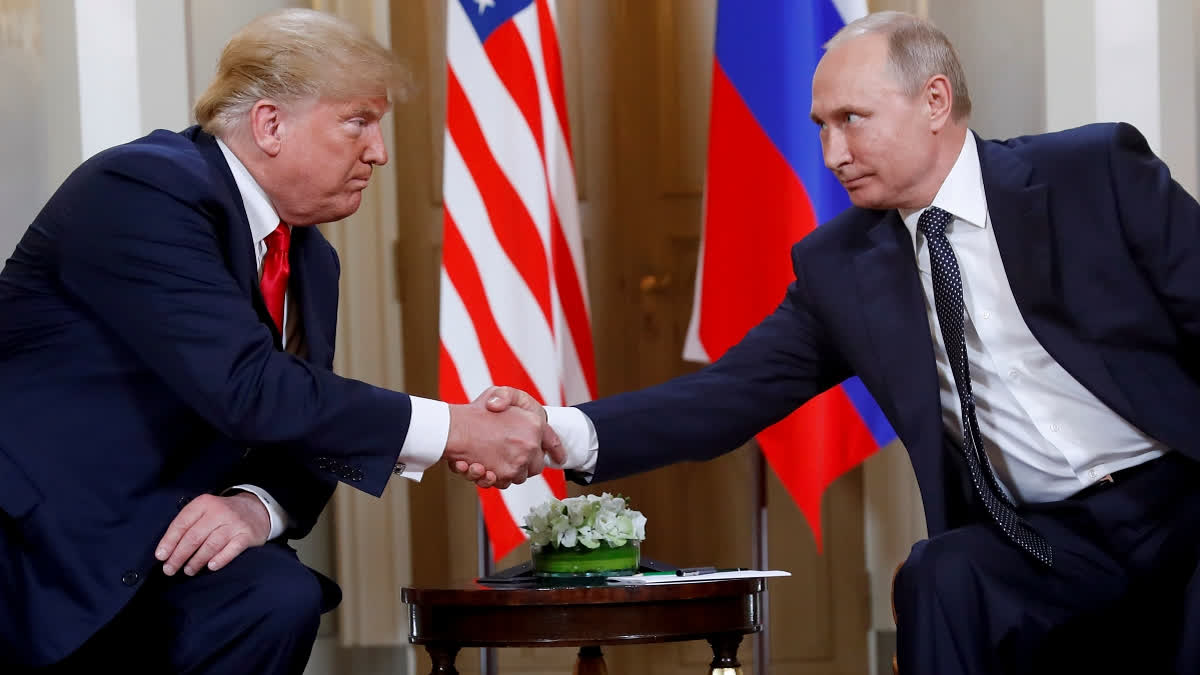United Nations:In a dramatic shift in transatlantic relations under President Donald Trump, the United States split with its European allies by refusing to blame Russia for its invasion of Ukraine in votes on three U.N. resolutions Monday seeking an end to the three-year war.
The growing divide follows Trump’s decision to open direct negotiations with Russia on ending the war, dismaying Ukraine and its European supporters by excluding them from the preliminary talks last week.
In the U.N. General Assembly, the U.S. joined Russia in voting against a Europe-backed Ukrainian resolution that calls out Moscow’s aggression and demands an immediate withdrawal of Russian troops.
The U.S. then abstained from voting on its own competing resolution after Europeans. led by France, succeeded in amending it to make clear Russia was the aggressor. The voting was taking place on the third anniversary of Russia’s invasion and as Trump was hosting French President Emmanuel Macron in Washington.
It was a major setback for the Trump administration in the 193-member world body, whose resolutions are not legally binding but are seen as a barometer of world opinion. The U.S. then pushed for a vote on its original draft in the more powerful U.N. Security Council, where resolutions are legally binding and it has veto power along with Russia, China, Britain and France. The vote in the 15-member council was 10-0 with five European countries abstaining – Britain, France, Denmark, Greece and Slovenia.
The dueling resolutions also reflect the tensions that have emerged between the U.S. and Ukraine. In escalating rhetoric, Trump has called Ukrainian President Volodymyr Zelenskyy a “dictator” for not holding elections during wartime, when much of Ukraine is under Russian occupation, its soldiers are on the frontlines and the country is under martial law.
Trump also has falsely accused Kyiv of starting the war and warned that he “better move fast” to negotiate an end to the conflict or risk not having a nation to lead. Zelenskyy responded by saying Trump was living in a Russian-made “disinformation space.”
In a whirlwind of diplomacy, Trump’s meeting with Macron will be followed by a visit on Thursday from British Prime Minister Keir Starmer, key U.S. allies who were in lockstep with Washington on Ukraine just over a month ago. They now find themselves on opposite sides on the best pathway for the UN to call for an end to the war.
The General Assembly voted 93-18 with 65 abstentions to approve the Ukrainian resolution. The result showed some diminished support for Ukraine, because previous assembly votes saw more than 140 nations condemn Russia’s aggression and demand an immediate withdrawal.
The assembly then turned to the U.S.-drafted resolution, which acknowledges “the tragic loss of life throughout the Russia-Ukraine conflict” and “implores a swift end to the conflict and further urges a lasting peace between Ukraine and Russia,” but never mentions Moscow’s aggression.
In a surprise move, France proposed three amendments, which add that the conflict was the result of a “full-scale invasion of Ukraine by the Russian Federation.” The amendments reaffirm the assembly’s commitment to Ukraine’s sovereignty, independence, unity and territorial integrity, and call for peace that respects the U.N. Charter.
Russia proposed an amendment calling for “root causes” of the conflict to be addressed. All the amendments were approved and the resolution passed 93-8 with 73 abstentions, with Ukraine voting “yes,” the U.S. abstaining, and Russia voting “no.”
Both assembly resolutions were supported by U.S. allies in Asia, including Japan, South Korea, Australia and New Zealand, its neighbors Canada and Mexico and European countries, with the exception of Hungary.
